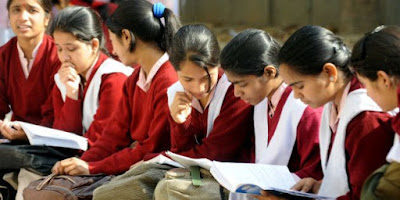“A people without the knowledge of their past history, origin and culture is like a tree without roots.” – Marcus Garvey
These words remind and reiterate the importance of history in building a strong culture, well developed nation and a civilized society that takes pride in eternalizing the legacy of perpetual elegance of victory and valour but what if we as citizens and our posterity are studying Distory but not the History of our empowered-for-eons nation. Do we ever think why as school students we studied what was forced and designed to accept ourselves as slaves only? Why our History books have taught us that we have always been ruled by foreign invaders, we had never won any battle and we could never show our dogged Commitment to sustain the glory of our Motherland?
An African adage goes as, ”Until the lions have their own
storytellers, the history of the hunt will always glorify the hunter.” So,
the fact is, until we learn to tell our own story and continue to think of
ourselves as in the way others have defined us, we will continue to be their
slaves. And, it’s very important that we tell our own stories which has become
the clarion call today but that road is also full of bumps and hurdles as there are pervasive biases, platitudes and ambiguities which make it truly pathetic that
even after 74 years of independence we are still not able to tell our History. It's the need of the hour that we should start embracing history to discard distory.
Interesting Read on History: Women-Warriors-Demand-Gender-Neutrality
The most important and obvious bias of Indian History is we all have been Forced to study the history of Delhi Sultanate but not the history of India, we have been forced to memorize a large number of kings and rulers of Delhi including obscure dynasties like the Lodhis and yet there are sizeable parts of Indian history which are not even mentioned in our history narrative, so, as a result unless you happen to be from Tamilnadu you probably never heard or know very little about the Cholas and Pallavas. You have never heard about the great Ahom kings from North East who ruled over that part of our country for 600 years. You might have not heard about Lalitaditya who set up a huge empire in the north of India. Satvahanas, Chalukyas etc. have been left out the narrative of India almost entirely, ironically we know nothing about them. Goa and Sikkim don’t even exist in the History books of our country. India needs to grab back its narratives from Delhi and this is the first most important thing we need to do with our curriculum which is much expected after the National Education Policy 2020.
To recognize that the large part of the way we think of our narratives have been heavily dominated by the way colonial rulers had told us the stories. Have you noticed that in all our History books whatever battle we fought we always lost it? Battle of Panipat, Battle of Buxar, Battle of Tarain, Indians were defeated in all of them. Didn’t we win any of the battle? And if we won how didn’t we know the least about them? The point is if we still own our motherland we must have won a few of them, here the problem is the victorious feats have been removed from our study so systematically that we know nothing about them, we are forced to believe that we people are meant to be colonized and ruled by some foreigners.
In the early 18th century, the
Dutch East India Company was the most formidable colonial power in the world.
They had conquered Indonesia, South Africa, Sri Lanka and were almost ready to
conquer India. But all their dreams shattered when they came across Marthanda
Varma, the legendary ruler who is considered the founder of the Travancore
kingdom. After their rout in the Battle
of Colachel in 1741, the Dutch East India Company was never able to
re-establish their power in Kerala again. It was a famous and decisive victory,
more importantly a water-shed moment in global history, against one of the most
fearsome military powers in the world that eventually led East India Company to
take over India. It was known worldwide
that since the Japanese defeated the Russians in 1905,no Asiatic power had ever
defeated a European power, even the Indian History text books talk about the
Japanese defeating the Russians, but they don’t tell us that previously the man
who defeated Europeans was an Indian, Marthanda Varma. Sadly, these narratives have been suppressed
and ignored by most Indians by leftist historians. What we all know today is
the Mughals ruled India and then the British took over.
One very important feature
of our history which has been wiped out
completely from our textbooks is the contribution of women in building a great
nation like India which is seen nowhere in the world, absolutely unique in
itself. Indian history is full of powerful, interesting, courageous and
intellectual women. And yet we don’t know very much about them. How many
history text books tell you about Devi Ahilya bai Holkar, Rani Durgawati, or
the resistance of Rani Abbakka from
Ullal who fought against Portuguese? The only one we hear about is Rani Laxmibai
and that too because of a very famous poem in Hindi by Subhadra Kumari Chauhan.
Expectations are rising
from all walks of life with the NEP 2020, a milestone in India’s journey to
becoming a global knowledge superpower. When our young nation strides towards
development, it becomes imperative to take inspiration from our ancient
heritage, glorious past and cultural values to transform the existing status
quo with an advanced futuristic approach. It’s the need of the hour that our
young learners should read the true history of their great nation, it’s time to
throw our distory books and revise
our history books.





